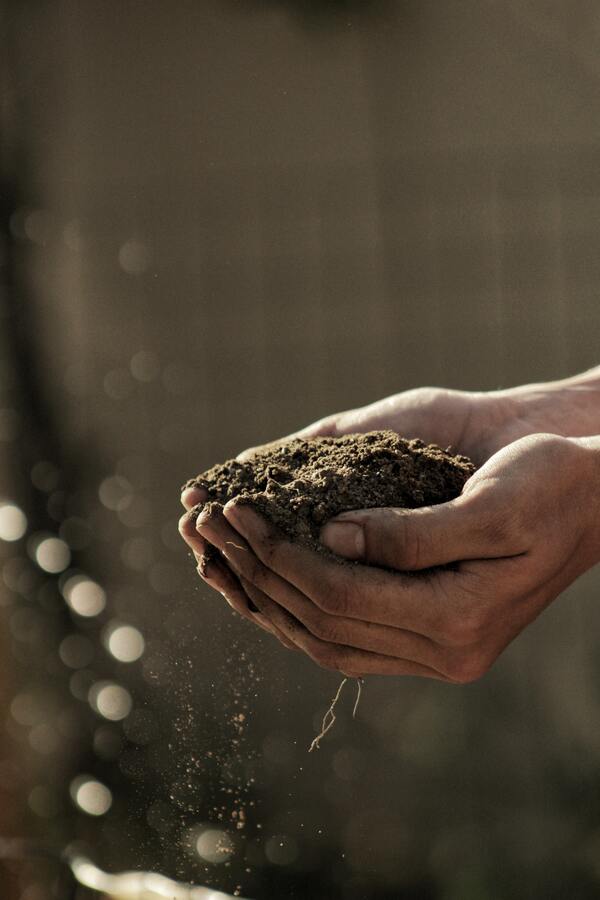What is soil health and how as a consumer can we save it?
The 2019-20 Soil Health Survey for India mentions that 57% of soil is deficient in nitrogen, 41% in phosphorus and 45% in organic carbon. This survey conducted by the Indian government is a wake-up call for the country. The farming methods used till date have led to the deterioration of soil. Now is the time to question those methods and focus on practices that save the soil from further damage.
Intensive agricultural practices to increase yield have harmed soil fertility in the long term. This topic is of utmost importance because the land with healthy soil is the source of our food. The quality and quantity of yield deteriorate with degrading soil health.
With the increasing population in the county, we will need more food in the coming years. The availability of healthy and edible food depends upon healthy soil. It is necessary to preserve and enhance its quality if we want to get good food for the increasing population. When food security is at stake, it calls for effective and quick action.
let us understand what determines the health of the soil
Soil health depends on the organic matter in the soil
Organic matter is the decomposed material of any plant or animal in the soil. This matter creates a habitat for the organism residing in the ground and adds to their nutrients. It also improves the soil quality and texture and reduces erosion. A few examples of organic matter include dried leaves, woody materials, insects, earthworms, moss, algae and much more.
High amounts of organic matter enhance nutrient retention and make the land easier to work on. The organic matter in the soil can range anywhere from 2-10% for it to be healthy soil. However, the more organic matter, the better it is.
Soil health depends on its water-holding capacity
The more organic matter in the soil, the better its water-holding capacity. As per social scientists' report, for every 1% of organic matter content, soil can hold up to 16,500 gallons (equivalent to 62,460 litres) of plant-available water per acre of soil down to one foot deep.
Soils with high water holding capacity nourish the crops well and keep the organic matter alive. Also, such rich soils depend less on irrigation or rainfall water for growing crops. The chances of drought are the least when the soil is healthy and has a high water-holding capacity.
Soil health depends on the presence of living organisms
A variety of living organisms in the soil include earthworms, beetles, certain bacteria, fungi, algae and many more. Each organism has its movement, way of living and food choices. Earthworms are intense in burrowing activity. This activity enhances the value of soil as they move and mix the soil particles with dead leaves.
Ground beetles are essential to keep pests at bay. They feed on them and ensure that they don’t harm the crops. Similarly, diverse organisms offer unique benefits to enhance soil quality throughout their lifecycle.
what can we do to keep the soil healthy?
Along with the above three components, multiple factors are considered in determining soil quality. The texture, colour, chemical composition, biological aspects and physical aspects collectively determine whether the soil is healthy or not. Continuous use of chemical fertilizers and pesticides has deteriorated the condition of the soil in greed to get more yield.
Practising organic farming will restore soil health and preserve it for the future. This farming focuses on growing healthy food and keeping the ground healthy. With the use of chemicals, one can easily enhance the yield. However, in the long term, it will deteriorate the land and reduce its fertility, making it useless in the coming years.
Simple steps to keep the quality of soil better by farming organically -
-
Rotating crops every season
-
Using cover crops
-
Add organic matter
-
Avoid any chemicals from being added to the soil
-
Use natural ways to eradicate pests and enhance the growth
-
Be patient and give your soil the time to restore its quality
-
Practising regenerative agriculture
This action plan is for those who are into farming or have a terrace garden. Others can show their contribution by supporting and promoting organic farming. Yes, what we support will grow. Choose to consume fruits, vegetables and grains that are grown organically. Seasonal produce keeps the soil healthy as they grow through a chemical-free process.
Food grown organically keeps the land fertile and is beneficial for your body. Organically grown food is free from chemicals and thus assures soil fertility in the long term as well. So, choose organic and be vocal about it. Awenest is here with some of the best organic products for you. Check out our wide range of consciously grown grains, flours and dal for your kitchen.
Photo by Gabriel Jimenez on Unsplash
Author-Brinda Shah is a freelance content writer. she is a ca turned into a writer who loves to read, write & meditate. you can connect with her on linkedin and on instagram






